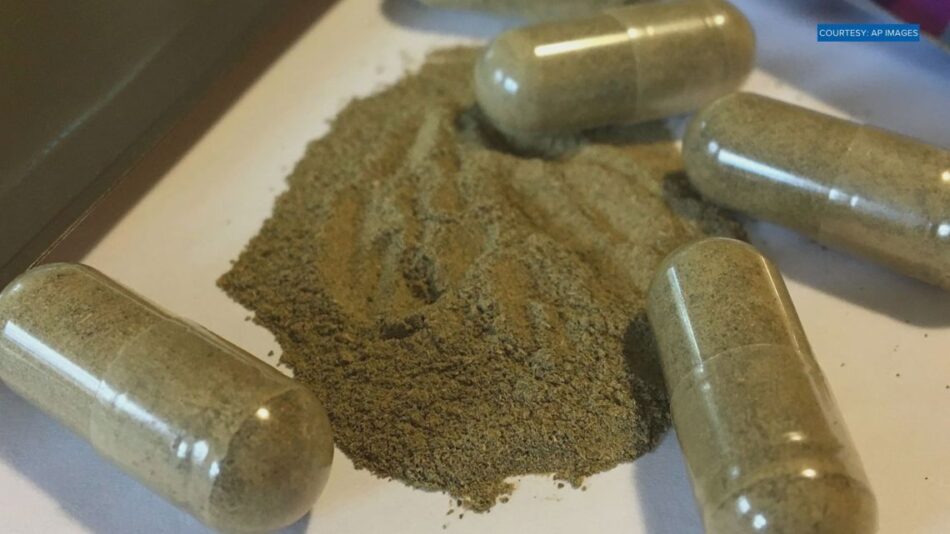A professor at Johns Hopkins University studies kratom, and says a new form, 7-OH, acts only on opioid receptors, raising substance abuse concerns
KNOXVILLE, Tenn. — Last week, Knoxville Police said one of their own, Officer Tyler Wheeler, was caught on security cameras shoplifting kratom while in uniform, on duty. Wheeler was issued a misdemeanor citation for theft, and does not have police powers. That investigation is still ongoing.
The National Institute on Drug Abuse notes that kratom is an herbal substance that can produce opioid and stimulant-like effects.
WBIR consulted Kristen Smith, an expert, to better understand kratom, its uses and potential abuse.
Smith is an assistant professor in the Department of Psychiatry and Behavioral Sciences at Johns Hopkins University. She has studied kratom use and substance use disorder.
Kratom, she said, is a tree that naturally grows in Thailand and Malaysia. It is now being grown in Indonesia. The botanical has been used for centuries, potentially longer, and was first documented being consumed in the United States in 2004.
“It’s a really complex botanical,” Smith said. “It’s not a hallucinogen, it’s not an opioid, it’s not a cannabinoid, but it has activity at many different receptors.”
Leaves on the kratom tree are dried, crushed, and turned into powder. That can be sold as is, or the powder can be placed in capsules, made into drinks and shots. It can also be made into extracts, gummies or edibles.
“It has many, many different alkaloids in it,” Smith said. “Essentially, those are chemical constituents that act on different receptors in the body and the brain. “
Smith said her team of researchers described the different chemicals in kratom as a ‘symphony’, but one instrument in kratom acts on opioid receptors in your brain. That chemical, called mitragynine, is in very small amounts in the natural form of kratom.
“Leaf and extract products is not the most cost-effective way to get high, right?” Smith said. “It’s just a lower potency experience.”
However, a newer, more synthetic form of kratom, called ‘7-OH’ or 7-hydroxymitragynine, acts heavily on opioid receptors.
“The 7-OH products, on the other hand, act only on the new opioid receptor,” Smith said. “That’s the same receptor that morphine acts on, or heroin or fentanyl. ”
Smith said this new product, 7-OH, has only been around for about a year and a half. Her team at Johns Hopkins is one of the first to study the effects of the synthetic substance.
“This is not like the kratom that’s been sold in gas stations for the past 10 years. It’s not,” Smith said.
A KPD spokesperson said Wheeler took several pouches of a 7-OH product.
Smith said her team is in the very early stages of looking at data from the 7-OH study, but she said she did see different forms of usage patterns with regular Kratom and 7-OH.
“I do think that there is a different addiction profile for 7-OH products compared to kratom,” Smith said.
If you or someone you know is struggling with addiction, there is help. Anyone struggling with addiction can reach out to professionals for help by calling or texting the Tennessee REDLINE for referrals to services. That number is 1-800-889-9789.
They can also find help online using a website called “FindHelpNow,” which the Tennessee Department of Health helped develop through a partnership with the Kentucky Injury Prevention and Research Center that guides people to nearby openings and services at substance-use facilities.










